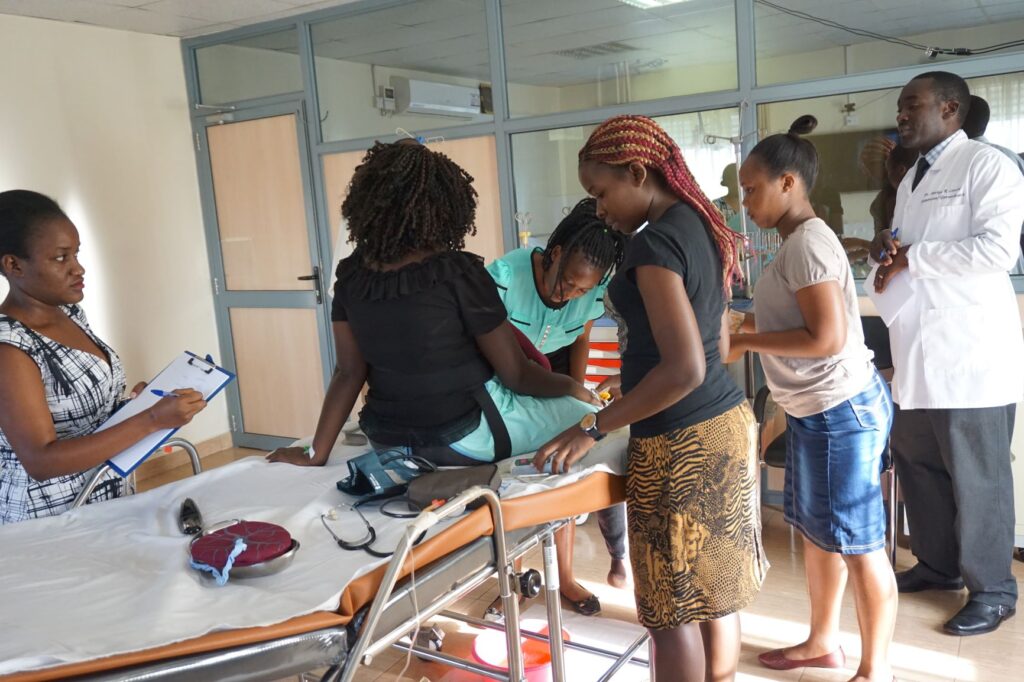
The two Sim for Life scenario execution rooms are equipped with state-of-the-art simulation mannequins and fully functioning medical equipment to support simulation participants. The Sim for Life’s staffs are trained to facilitate simulation sessions for pre-service and in-service health care personnel.
Through these sessions, these participants can practice up to 15 existing different clinical simulation scenarios pertaining to the areas of obstetrics and gynecology, paediatrics, internal medicine, and surgery. It is possible for the team to modify the scenarios to reflect the individual challenges or areas of interests of the participants.
The simulation sessions last approximately 1 hour and are completed by teams, usually ranging from 4 to 6 participants. One of these usually acts as the team leader, and the team is led through the session by one of the Sim for Life’s trained facilitators or any other trained member of faculty with clearance from our team.
To complete a session, the participants are pre-briefed about the scenario they will encounter.Kindly find the pre-brief video here https://urlzs.com/HpxWB Following that, they are then allowed to take a moment to organize themselves to work as a team and then return to run through the scenario. Once in, they must take adequate steps to stabilize the patient and save his or her life.
After they have achieved this goal, or the facilitator assesses that too much time has passed and the simulation session must come to an end, he informs the participants that the session has ended and they proceed for a post-simulation debrief. The simulation can be recorded for self-assessment. In the debrief, the participants are invited to reflect on their performance during the simulation and consider what their strengths and weaknesses were in a non-judgemental way.
Additionally, the simulation facilitator gives them feedback and informs them about the gaps he or she observed in their performance and teaches them about the strategies that can be taken to improve clinical care and teamwork. This combination of simulation and debriefing is an effective and innovative way for students to learn and retain clinical and teamwork skills.
From inception in April of 2017 to date, the Sim for Life team has facilitated over 800 medical simulation sessions, averaging out to roughly 22 simulations per week. We have the capacity to handle more scenarios monthly than we have in the past years.







